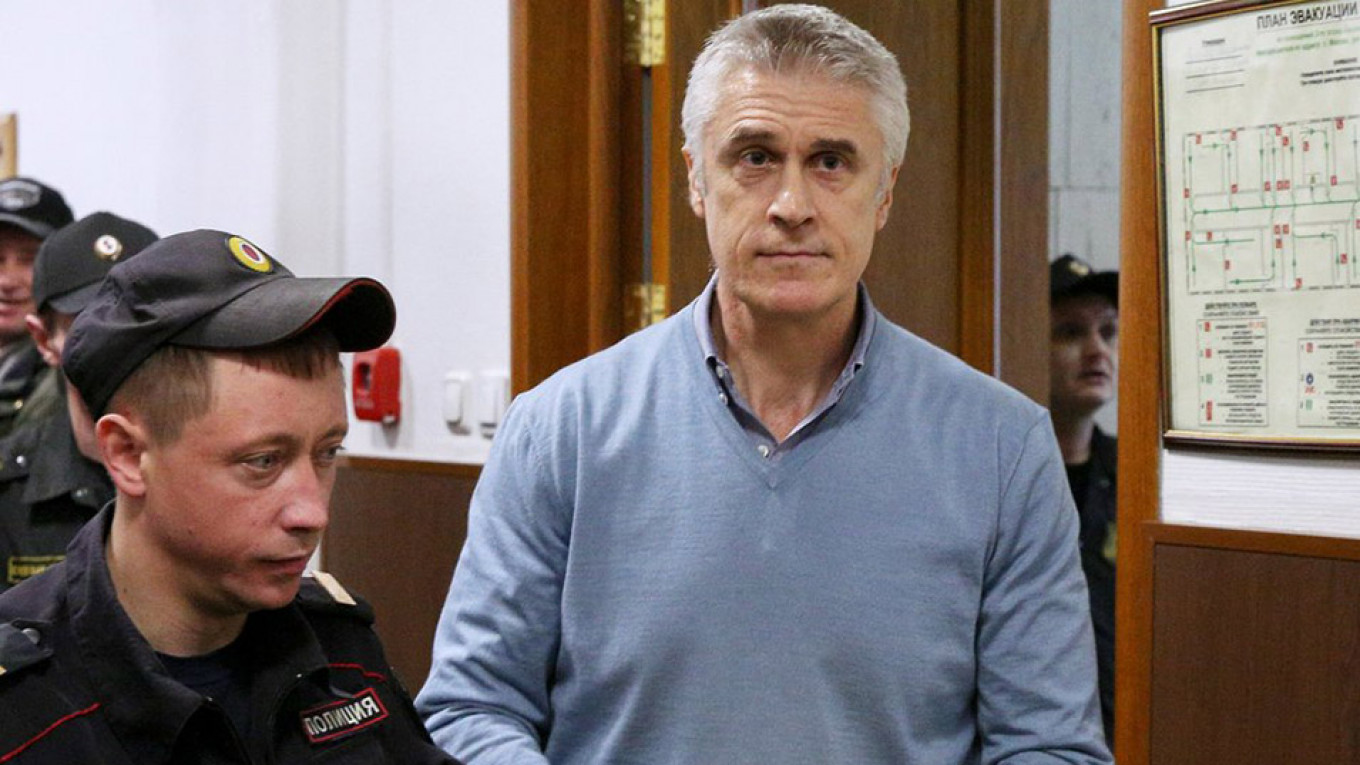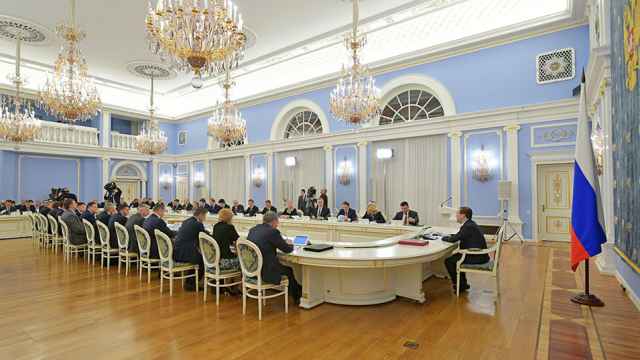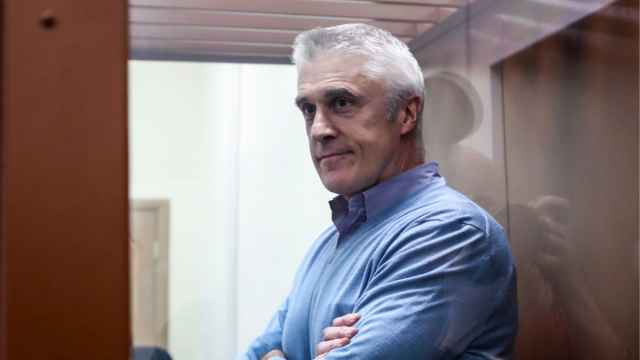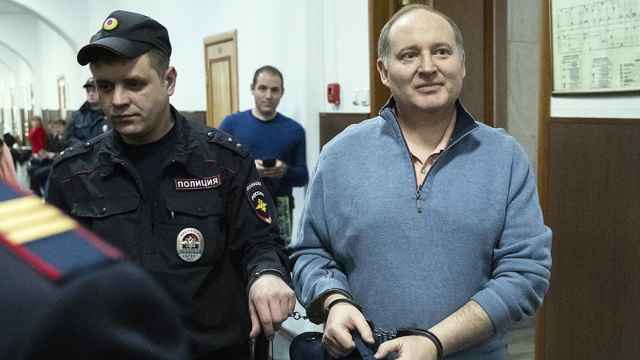The ever-narrowing space for public politics in Russia and the worsening of relations with the outside world have engendered a situation in which many important trends in both foreign and domestic politics are now being communicated indirectly, with the help of symbolic gestures and signals.
However, the inconsistency of these signals due to the ongoing internal struggle for influence makes understanding and predicting the Kremlin’s next steps a complicated task.
On Monday June 3, presidential press secretary Dmitry Peskov said in an interview with the state-owned international news outlet RT that the Kremlin would like to see American investor Michael Calvey (the founder of private equity firm Baring Vostok, who is currently under house arrest on accusations of fraud) among the guests of the St. Petersburg International Economic Forum (SPIEF), which opens on June 6.
However, Peskov said he cannot guarantee Calvey’s participation, since, as the Kremlin spokesman noted, he is not the one who “issues permissions of this kind.” On May 31, representatives of Baring Vostok approached the Investigative Committee for permission for Calvey to attend the forum.
In the light of Peskov’s earlier pronouncements, Monday’s statement had a strange ring to it: instead of the routine “the president is unable to comment on the Calvey case, since investigations are underway” (a quote from March 15) the presidential representative thought fit to declare that “this is a deplorable affair <...> we are very sorry about this <...> we all know him as a trustworthy businessman.”
The change of rhetoric in regard to Calvey can be seen as one of a number of specific signals through which Vladimir Putin is demonstrating — or is testing — his intentions on questions both of domestic and foreign policy. Yet hints are just hints: official recognition of the Calvey affair as a mistake is rather unlikely, since it would contradict the longstanding principle that “the authorities don’t make mistakes.”
Historical parallels can be found, however, in Stalinist times. For academics and engineers, a transfer from an ordinary labor camp to a sharashka (a research and development center for prisoners) to work in their field in what were comfortable conditions for those times was seen as a kind of apology for their arrest.
In this light, Calvey’s transfer to house arrest and an informal invitation to the SPIEF may make more sense.
Whether or not Calvey participates in the forum will show to what extent the Kremlin’s public discourse coincides with its real intentions: it is common knowledge that the siloviki do not always react to public statements by senior officials, if they are not reinforced by something else (recall the Kirill Serebrennikov affair).
When the political will is there, the problem is technically solved — and there are precedents for this (recall the swiftness with which opposition leader Alexei Navalny’s conviction was replaced with a suspended sentence).
Taking a softer position on Calvey’s fate could be a signal for foreign investors (and more convincing than calls not to link the Baring affair with the investment climate) and simultaneously a message to U.S. President Donald Trump not long before the G20 summit in Osaka, where the personal meeting between Putin and Trump that has been postponed several times may finally take place.
Another thing is that the signals being sent to Russian society and the world are also often inconsistent: their humanism or, on the contrary, harshness will depend on the bureaucratic victory of one of the factions in this byzantine struggle.
In this situation, finding the secret code that will allow us to accurately decrypt the Kremlin’s signals is an extremely tough proposition.
This article was originally posted in Vedomosti.
A Message from The Moscow Times:
Dear readers,
We are facing unprecedented challenges. Russia's Prosecutor General's Office has designated The Moscow Times as an "undesirable" organization, criminalizing our work and putting our staff at risk of prosecution. This follows our earlier unjust labeling as a "foreign agent."
These actions are direct attempts to silence independent journalism in Russia. The authorities claim our work "discredits the decisions of the Russian leadership." We see things differently: we strive to provide accurate, unbiased reporting on Russia.
We, the journalists of The Moscow Times, refuse to be silenced. But to continue our work, we need your help.
Your support, no matter how small, makes a world of difference. If you can, please support us monthly starting from just $2. It's quick to set up, and every contribution makes a significant impact.
By supporting The Moscow Times, you're defending open, independent journalism in the face of repression. Thank you for standing with us.
Remind me later.








